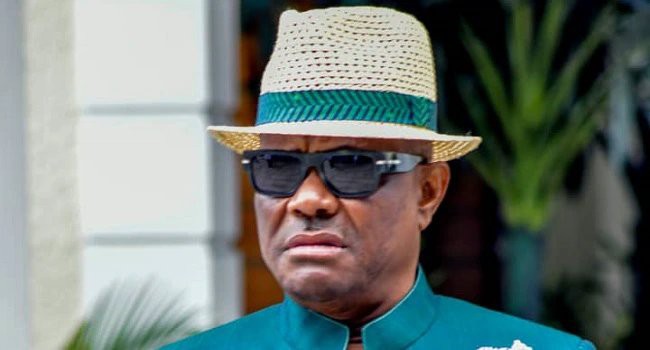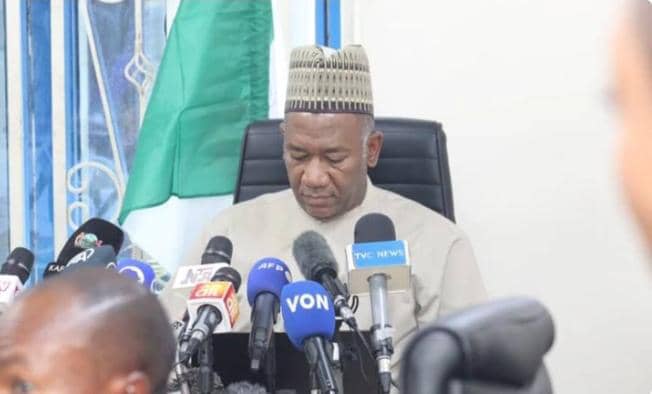News
Trump unveils plan for 20,000 new officers to facilitate mass deportations

Former President Donald Trump, on Saturday, May 10, 2025, issued a new directive ordering the Department of Homeland Security (DHS) to add a minimum of 20,000 additional personnel.
This is reportedly to enforce his administration’s aggressive deportation policies.
The order, announced on Friday, is part of a broader strategy to encourage undocumented immigrants to voluntarily leave the United States.
In a video message, Trump stated that his goal was to make the process of self-deportation as straightforward as possible for those living in the U.S. without legal status.
As part of this plan, the federal government is reportedly set to fund one-way flights out of the country for undocumented individuals who choose to leave on their own.
These individuals will also be offered a financial incentive in the form of an “exit bonus,” as outlined in the executive order.
However, the directive did not detail how the expansion of the DHS workforce would be financed.
At present, Immigration and Customs Enforcement (ICE)—a key agency under DHS focused on immigration enforcement, employs over 21,000 personnel.
Among them are approximately 6,100 deportation officers and more than 750 enforcement removal assistants, according to ICE’s official records.
Trump has long pushed for increased collaboration between federal immigration authorities and local and state law enforcement, as well as involvement from the National Guard.
His recent order calls for DHS to bolster its operations by deputizing state and local police officers.
It also contracted with former federal agents, and utilizing personnel from other federal departments.
This latest move aligns with Trump’s broader immigration agenda.
This includes multiple approaches to compel undocumented immigrants to exit the U.S. voluntarily.
One such effort involves encouraging self-deportation through the use of a government mobile app known as “CPB Home.”
The administration has positioned this tool as a way for individuals to begin the deportation process on their own terms.
Further reinforcing this push, DHS Secretary Kristi Noem recently announced that individuals who voluntarily leave the country could receive a $1,000 bonus and paid transportation.
This measure is designed to make the option of leaving voluntarily more appealing in contrast to facing punitive consequences.
The initiative has been branded “Project Homecoming” by Trump, who said the campaign is intended to reclaim American jobs and resources.
In his statement, he warned of severe consequences for undocumented immigrants who choose to stay in the country.
“Illegal aliens who remain in America will face harsh punishments, including long prison terms, massive financial penalties, confiscation of all property, garnishment of wages, and deportation, carried out at a time, place, and manner entirely of our choosing,” Trump said.
While the administration pushes forward with voluntary deportation incentives, it has reportedly faced legal obstacles with other aspects of its enforcement strategy.
Notably, the use of the 18th-century Alien Enemies Act to deport Venezuelan migrants accused of gang affiliations has been blocked in court.
Earlier this month, U.S. District Judge Fernando Rodriguez, appointed by Trump himself, ruled that employing the act in this context was unlawful.
Another federal judge in New York later echoed this ruling, adding further legal resistance to the administration’s broader deportation framework.
Despite these setbacks, the Trump administration remains supposedly committed to strengthening immigration enforcement.
It also reportedly aims to expand the scope of deportations by increasing manpower and offering financial incentives to undocumented immigrants who leave voluntarily.
The proposed expansion of DHS personnel and collaboration with local authorities is intended to enhance operational capacity and close enforcement gaps.
The strategy, while controversial, reflects Trump’s longstanding promise to take a hardline stance on illegal immigration.
It aims to reduce the undocumented population in the U.S. through a combination of pressure, incentives, and increased enforcement capabilities.
According to experts, whether this approach will withstand ongoing legal challenges or be implemented on the scale envisioned remains to be seen.
However, it is clear that immigration continues to be a focal point of Trump’s political agenda.
For Diaspora Digital Media Updates click on Whatsapp, or Telegram. For eyewitness accounts/ reports/ articles, write to: citizenreports@diasporadigitalmedia.com. Follow us on X (Fomerly Twitter) or Facebook












